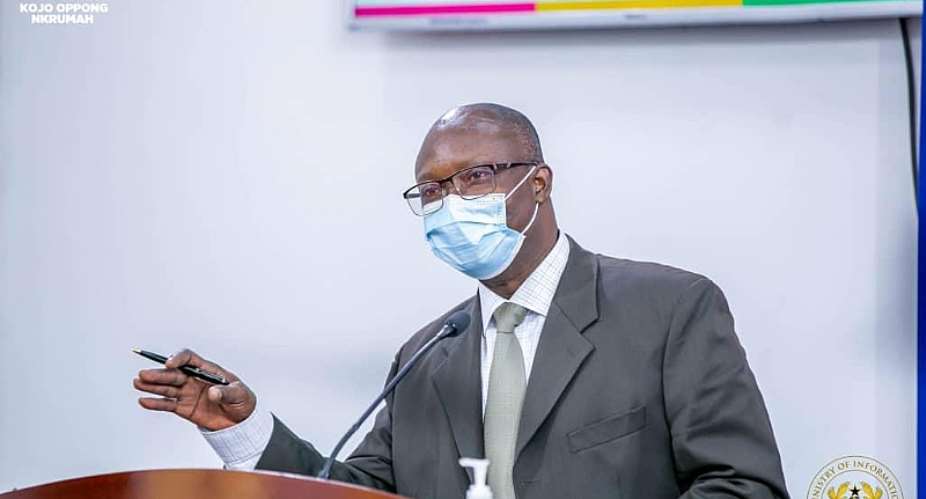The Deputy Commissioner in charge of Strategy, Research, Policy and Programmes at the Ghana Revenue Authority (GRA), Dr. Charles Addae has called for the controversial electronic transaction (e-levy) to be sustained.
He argued that the e-levy, despite the widespread opposition was able to raise about 1.2 billion cedis in revenue last year.
Speaking on the sidelines of the opening of a two-day conference themed “Taxing Mobile Money-Lessons and Ways Forward” organized by the International Centre for Tax and Development (ICTD) in partnership with the GRA at the Alisa Hotel on Wednesday, February 28, he explained that the proceeds from the e-levy has helped government embarked on certain projects.
Its removal, the GRA official said, will mean the nation will lose a chance to boost its tax to GDP thereby depending too much on loans.
“Well, it is good that people pay tax. We are having some political talks that the tax may be cancelled in future We have pleading that it's better we sustain the revenue that is coming from it 1.1 billion or 1.2 billion that was raised in 2023, helped in filling some holes in the country otherwise, we may be depending too much on loans, which will not help the economy.
“So my idea is that or my plea is that we sustain and help increase the tax to GDP of the nation to help the development agenda of government. Whichever government in power needs revenue to run without tax revenue, the country can not run,” he said.
His comments come on the back of a promise made by NPP flagbearer Dr. Mahamudu Bawumia to abolish the e-levy if voted as President in order to fast-track the move towards a cashless economy.
“To move towards a cashless economy however, we have to encourage the population to use electronic channels of payment. To accomplish this, there will be no taxes on digital payments under my administration. The e-levy will therefore be abolished,” he said while delivering his policy speech on Wednesday, February 7, at UPSA.
The e-levy, implemented in May 2022, is a 1% tax placed on electronic financial transactions such as mobile money payments and bank transfers above GH¢100 daily.
It was introduced in the 2021 budget with the aim to widen the tax net and raise additional revenue for development projects.
However, it faced huge backlash from the public, entrepreneurs, and other stakeholders over concerns it would negatively impact digital and mobile money transactions and also burden the poor.






 Don't travel to volatile regions in northern Mali — Ministry of Foreign Affair t...
Don't travel to volatile regions in northern Mali — Ministry of Foreign Affair t...
 ILO’s claim of depleting reserves false, we have funds to pay pensions — SSNIT
ILO’s claim of depleting reserves false, we have funds to pay pensions — SSNIT
 Benin police fire tear gas to break up union protest
Benin police fire tear gas to break up union protest
 Lay KPMG audit report on SML-GRA contract before Parliament – Isaac Adongo tells...
Lay KPMG audit report on SML-GRA contract before Parliament – Isaac Adongo tells...
 Supervisor remanded for stabbing businessman with broken bottle and screwdriver
Supervisor remanded for stabbing businessman with broken bottle and screwdriver
 People no longer place value in public basic schools; new uniforms, painting wil...
People no longer place value in public basic schools; new uniforms, painting wil...
 'Comedian' Paul Adom Otchere needs help – Sulemana Braimah
'Comedian' Paul Adom Otchere needs help – Sulemana Braimah
 Ejisu by-election: Only 33% of voters can be swayed by inducement — Global InfoA...
Ejisu by-election: Only 33% of voters can be swayed by inducement — Global InfoA...
 Minority will expose the beneficial owners of SML, recover funds paid to company...
Minority will expose the beneficial owners of SML, recover funds paid to company...
 Prof. Opoku-Agyemang has ‘decapitated’ the NPP’s strategies; don’t take them ser...
Prof. Opoku-Agyemang has ‘decapitated’ the NPP’s strategies; don’t take them ser...
